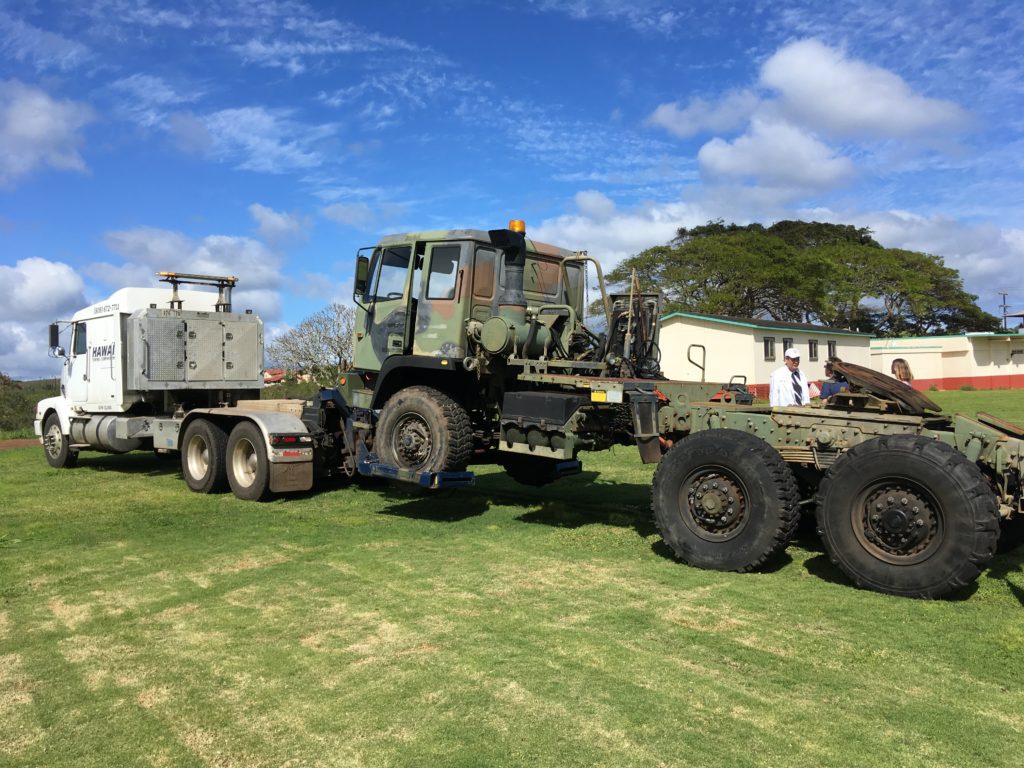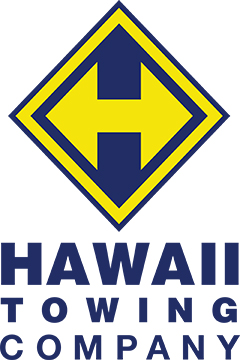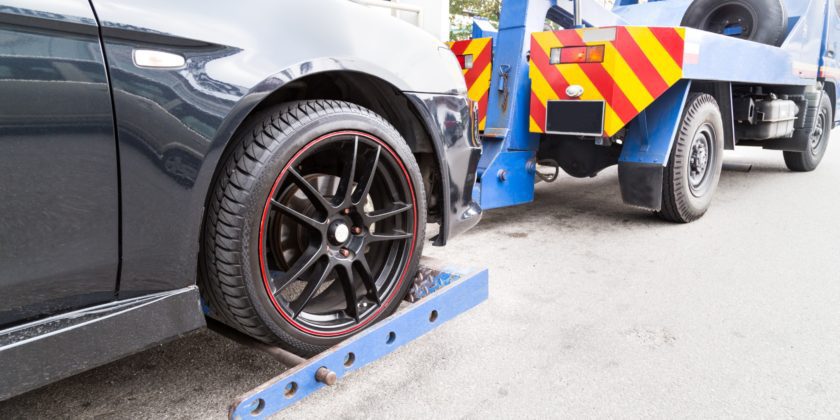Navigating the Challenges of Heavy Duty Towing
In the realm of vehicular assistance, heavy-duty towing stands as a cornerstone service, ensuring the swift and safe recovery of large vehicles in distress. Hawaii Towing Company Inc. takes center stage in this critical operation, offering unparalleled expertise and reliability in handling the most challenging towing scenarios. From commercial trucks to industrial machinery, their seasoned team and state-of-the-art equipment are poised to tackle any towing need with precision and care. Explore the intricacies of heavy-duty towing and the indispensable role it plays in maintaining road safety and efficiency.
The Backbone of Heavy Industry: Importance of Heavy Duty Towing

Heavy duty towing serves as the backbone of various industries, providing essential support for sectors such as construction, mining, transportation, and logistics. In these industries, the movement of heavy vehicles and equipment is a fundamental aspect of daily operations. However, when breakdowns or accidents occur, the need for prompt and reliable towing services becomes evident. Heavy duty towing companies play a crucial role in ensuring that operations remain uninterrupted by swiftly responding to towing requests and efficiently transporting vehicles to their destinations. Without these services, downtime could result in significant financial losses and delays in project timelines, highlighting the indispensable nature of heavy duty towing in supporting industrial activities.
Operators in the heavy duty towing industry face a unique set of challenges that require specialized skills and equipment to overcome. Unlike conventional towing, which typically involves smaller vehicles, heavy duty towing involves handling large and heavy machinery, often in demanding environments. From navigating narrow construction sites to traversing rugged terrain, towing operators must possess the expertise to safely and effectively transport heavy loads. Additionally, the sheer weight and dimensions of the vehicles being towed present logistical challenges that require careful planning and execution. Despite these obstacles, heavy duty towing companies remain committed to delivering exceptional service and supporting the seamless operation of heavy industry.
The Unique Challenges Faced by Heavy Duty Towing Operators
Heavy duty towing operators confront a myriad of challenges that distinguish their work from conventional towing operations. The nature of heavy duty towing requires operators to handle oversized vehicles and equipment, which demand specialized skills and equipment. Maneuvering heavy-duty wreckers and rotators to safely tow vehicles of immense weight requires precision and expertise. Moreover, heavy duty towing often occurs in challenging environments, such as construction sites or remote locations, where road conditions may be less than optimal. Operators must navigate these obstacles while prioritizing safety and minimizing disruptions to traffic flow.
Safety is a paramount concern in heavy duty towing operations, given the potential risks associated with handling large and heavy vehicles. Operators undergo rigorous training to ensure they possess the skills necessary to safely execute towing procedures. This includes proper vehicle stabilization techniques, load distribution principles, and adherence to industry safety standards. Additionally, heavy duty towing companies invest in state-of-the-art equipment and technology to enhance safety and efficiency. Features such as hydraulic systems and remote diagnostics enable operators to perform towing tasks with precision and control, further minimizing the risk of accidents or damage. By prioritizing safety at every stage of the towing process, operators uphold the highest standards of professionalism and reliability in the industry.
Safety First: Ensuring Safe Practices in Heavy Duty Towing
Safety is paramount in heavy duty towing operations, given the immense size and weight of the vehicles involved. Operators undergo extensive training to familiarize themselves with safety protocols and procedures to mitigate risks during towing operations. This includes proper vehicle stabilization techniques, load distribution principles, and the use of personal protective equipment. By adhering to strict safety guidelines, operators can minimize the likelihood of accidents and injuries, ensuring the well-being of themselves and others on the road.
In addition to training, heavy duty towing companies prioritize the maintenance and inspection of their equipment to uphold safety standards. Regular checks and servicing help identify and address potential issues before they escalate into safety hazards. Furthermore, operators are trained to assess the surrounding environment for any potential risks and to adapt their approach accordingly. By prioritizing safety at every stage of the towing process, heavy duty towing operators uphold the highest standards of professionalism and reliability, ensuring that towing operations are conducted safely and efficiently.
Specialized Equipment: The Tools of the Trade in Heavy Duty Towing
Heavy duty towing operations rely on a range of specialized equipment and vehicles to tackle the unique challenges posed by towing large and heavy vehicles. From heavy-duty wreckers and rotators to recovery systems and hydraulic lifts, each piece of equipment is carefully selected and maintained to ensure optimal performance. These tools are designed to withstand the immense weight and dimensions of heavy-duty vehicles and equipment, allowing operators to safely and efficiently execute towing tasks.
In addition to traditional towing equipment, heavy duty towing companies also invest in advanced technology to enhance their capabilities. GPS tracking systems enable operators to monitor the location and status of vehicles in real-time, improving response times and coordination. Remote diagnostics allow technicians to assess the condition of vehicles remotely, facilitating faster repairs and minimizing downtime. By leveraging the latest advancements in technology and equipment, heavy duty towing companies can deliver reliable and efficient towing services, even in the most challenging of circumstances.
From Trucks to Buses: The Diverse Range of Vehicles Towed in Heavy Duty Operations
Heavy duty towing encompasses a diverse range of vehicles, each presenting its own set of challenges and requirements. From semi-trucks and buses to RVs and construction equipment, towing operators must possess the expertise and equipment to handle various types of vehicles safely and efficiently. This requires a deep understanding of vehicle dynamics and towing techniques, as well as specialized tools such as wheel lifts, tow bars, and winches.
Furthermore, different types of vehicles may require different towing methods and precautions to ensure their safe transport. For example, towing a bus or RV may require additional stabilization and securing measures to prevent shifting during transit. Similarly, towing construction equipment may involve specialized rigging and lifting techniques to accommodate their unique shapes and sizes. By being well-equipped and knowledgeable about the diverse range of vehicles they may encounter, heavy duty towing operators can provide reliable and effective towing services across various industries and situations.
Responding to Emergencies: The Role of Heavy Duty Towing in Roadside Assistance
Heavy duty towing companies play a critical role in roadside assistance and recovery efforts, providing prompt and reliable support to vehicles in distress. Whether it’s clearing accident scenes, rescuing stranded vehicles, or recovering vehicles from precarious situations, heavy duty towing operators are often the first responders in emergency situations on the road. Their specialized equipment and expertise enable them to safely and efficiently address a wide range of emergencies, minimizing disruptions to traffic flow and ensuring the safety of motorists.
In addition to their towing capabilities, heavy duty towing companies often provide additional roadside assistance services, such as jump-starts, tire changes, and fuel delivery. This comprehensive approach ensures that motorists receive the assistance they need, regardless of the nature of their emergency. By offering timely and effective support, heavy duty towing operators contribute to the overall safety and efficiency of the roadways, helping to keep traffic moving smoothly and reducing the impact of emergencies on motorists and communities.
Environmental Considerations: Minimizing the Impact of Heavy Duty Towing Operations
Heavy duty towing operations can have a significant environmental impact, including fuel consumption, emissions, and noise pollution. As such, towing companies are increasingly adopting eco-friendly practices and technologies to reduce their carbon footprint and minimize environmental damage. This includes investing in fuel-efficient vehicles, implementing route optimization strategies to reduce travel distances, and maintaining their fleet to ensure optimal performance and efficiency.
Furthermore, heavy duty towing companies may also explore alternative fuels and propulsion systems, such as electric or hybrid vehicles, to further reduce their environmental impact. By embracing sustainable practices and technologies, towing companies can minimize their contribution to air and noise pollution, as well as reduce their reliance on fossil fuels. Additionally, these efforts can help towing companies align with regulatory requirements and industry standards for environmental sustainability, demonstrating their commitment to responsible business practices
Conclusion
Heavy-duty towing demands meticulous navigation through various challenges. From handling massive vehicles to ensuring safety on busy roads, Hawaii Towing Company Inc understands the complexities involved. With a dedicated team and specialized equipment, tackling the demands of heavy-duty towing becomes a seamless endeavor. As vehicles grow in size and weight, the expertise and capabilities of towing services become increasingly crucial. Hawaii Towing Company Inc exemplifies proficiency in this field, prioritizing efficiency and safety in every operation. In the realm of heavy-duty towing, adept navigation of challenges is not just a necessity but a testament to reliability and professionalism.

